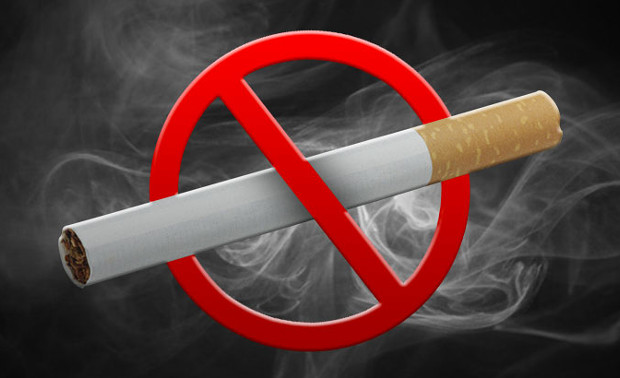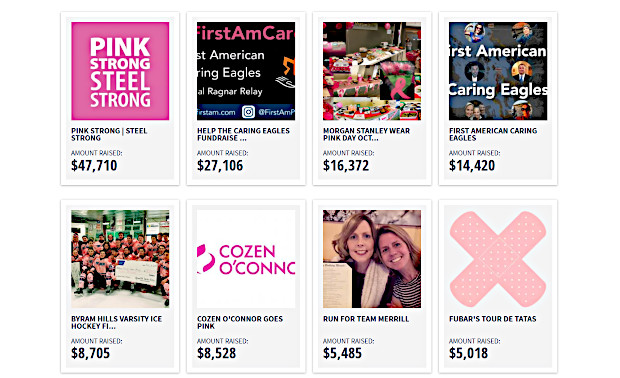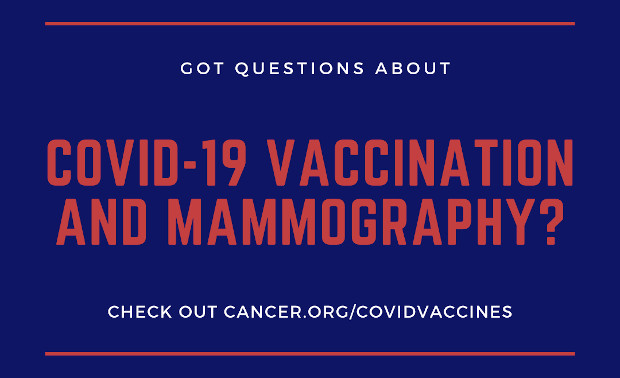- Prevent cancer
- Reduce the risk of cancer
- Find cancer earlier
- Improve cancer treatments
- Help more people survive cancer
- Improve the quality of life for people who have cancer
Learn more at cancer.org.
Learn more at cancer.org.
When you learn you have cancer, you want to make sure you get the best possible medical care and treatment. Choosing your doctor and treatment center will be one of the most important decisions you’ll make. There are many excellent cancer care centers in the United States, but how do you know where to look? Cancer.org offers some things to think about as you choose your doctor and hospital.
The American Cancer Society's Bark For Life is a fundraising event honoring the life-long contributions of our canine caregivers. These dogs demonstrate unconditional love, joy, compassion, and no judgments of cancer survivors’ abilities or appearances.
#PatientSafetyAwarenessWeek encourages everyone to learn more about health care safety. During this week learn more about the Patient Bill of Rights.
In honor of #AbsolutelyIncredibleKidDay, celebrate courageous kids impacted by childhood cancer by learning about Relay For Life's Gold Together teams.
Cancer doesn’t fight fair at any age, but it is particularly devastating for children. Substantial progress has been made against some types of pediatric cancers, boosting survival for those cancers. However, there are still several types of kids’ cancers with low survival rates or no known cure.
With your help through the American Cancer Society's Gold Together Champion campaign, we can change the odds, and fight back together. During childhood cancer awareness month, Gold Together Champions will raise awareness and fund the fight to end childhood cancer.
People with cancer sometimes have an increased risk for sleep problems because of treatment effects and other factors. It's important to know why sleep problems can happen, what can be done to help manage them, and when to ask for help. Learn more at cancer.org in honor of #NationalSleepAwarenessWeek.
ACS CAN urging lawmakers to prioritize proven tobacco control policies.
The Centers for Disease Control and Prevention (CDC) released new advertisements today as they kick off the 10th year of the highly successful “Tips from Former Smokers” national campaign.

The ads will run March 1 through Sept. 26 on national cable and network television, streaming radio, and online. The ads will also run in 28 local TV markets with higher smoking prevalence.
Two of the new ads in this year’s campaign feature participants who have been diagnosed with cancer-related to tobacco use, as well as their caregivers. The following is a statement from Lisa Lacasse, president of the American Cancer Society Cancer Action Network (ACS CAN):
“With roughly one-third of all cancer deaths being linked to tobacco use, we’re excited to see the CDC kick off their 10th year of the “Tips from Former Smokers” campaign. This campaign has helped more than 1 million people quit in the time it has been running, has inspired millions more to try to quit and has saved an estimated $7.3 billion in smoking-related health care costs. Avoiding tobacco is one of the most effective ways to reduce your risk of developing cancer.
“These powerful ads are based on strong evidence regarding which anti-smoking messages work best and have proven to be a valuable tool in the fight against this deadly addiction. But they’re even more effective when paired with strong tobacco control policies.
“ACS CAN is calling on Congress and the administration to prioritize efforts to reduce tobacco use and save lives by increasing funding for the CDC’s Office on Smoking and Health (OSH). Additionally, federal, state and local lawmakers should continue to support a comprehensive approach to tobacco control with 100% smoke-free laws, regular and significant tobacco tax increases that include e-cigarettes, funding for evidence-based prevention and cessation programs and access to all FDA-approved cessation services in Medicaid. These interventions are proven to be the most effective ways to reduce tobacco use, which ultimately reduces death and suffering from tobacco-related diseases.”
Today is #NationalNoSmikingDay. Quitting tobacco is not easy, but it can be done. Whether you smoke cigarettes, use smokeless tobacco, or are trying to help a friend or loved one, you'll find the information you at cancer.org.
Finding coincides with plummeting cancer screening rates due, in part, to COVID-19.
Attendance at regular mammography screening substantially reduces the risk of dying from breast cancer, according to a large ACS-funded study of more than half a million women published March 1 in Radiology. Researchers said women who skip even one scheduled mammography screening before a breast cancer diagnosis face a significantly higher risk of dying from the cancer.

“This is the first time we’ve analyzed the mortality benefit of not just breast cancer screening, but regular breast cancer screening, using such a robust, comprehensive data set,” said Robert Smith, PhD, our senior vice president of cancer screening.
“This study comes at a critical time, as a staggering number of women have missed their regular mammogram over the past 12 months due to the period when screening services were suspended as a result of the pandemic, as well as enduring fears and barriers caused by the COVID-19 pandemic," he said.
In the new study led by László Tabár, MD, from Falun Central Hospital in Falun, Sweden, a multinational team of researchers took a more detailed look at screening attendance patterns to further refine mortality risk estimates. They analyzed data from almost 550,000 women eligible for mammography screening in nine Swedish counties between 1992 and 2016. The women were divided into groups based on their participation in the two most recent scheduled screening exams prior to cancer diagnosis. Women who participated in both screening sessions prior to diagnosis were identified as serial participants, while those who did not attend either screening opportunity were categorized as serial nonparticipants.
Analysis showed that participation in the two most recent mammography screening appointments before a breast cancer diagnosis provides a higher protection against breast cancer death than participation in neither or only one examination.
The incidence of breast cancers proving fatal within 10 years of diagnosis was 50% lower for serial participants than for serial nonparticipants. Compared to women who attended only one of the two previous screens, women who attended both had 29% fewer breast cancer deaths.
“Regular participation in all scheduled screens confers the greatest reduction in your risk of dying from breast cancer,” said the study’s lead author, Stephen W. Duffy, M.Sc., professor of cancer screening at Queen Mary University of London.
Duffy said the results add further evidence to support regular screening with mammography as a means for reducing breast cancer-related deaths: “While we suspected that regular participation would confer a reduction greater than that with irregular participation, I think it is fair to say that we were slightly surprised by the size of the effect.”
“The message that women should take from this analysis is clear: regular screening tests can save your life,” Smith said. “Regular mammography screening is an important part of a woman’s preventive health plan. And, if you’ve missed getting your mammogram during this pandemic, call your doctor to make up that appointment, and be conscientious going forward about getting regular mammograms.”
Breast cancer screening with mammography has helped to substantially reduce breast cancer deaths by enabling detection of cancer at earlier, more treatable stages. Despite mammography’s well-established effectiveness, many women don’t participate in recommended screening examinations, and pandemic-related barriers to screening have exacerbated this reluctance. According to the Prevent Cancer Foundation, an estimated 35% of Americans missed routine cancer screening due to COVID-19-related fears and service disruptions early in the pandemic.
In the U.S. in 2021, there will be an estimated 281,550 new cases of invasive breast cancer diagnosed in women and 43,600 deaths. For women at average risk of breast cancer, the American Cancer Society recommends that those 40 to 44 years of age have the option to begin annual mammography; those 45 to 54 undergo annual mammography; and those 55 years of age and older transition to biennial mammography or continue annual mammography. Women should continue mammography as long as overall health is good and life expectancy is 10 or more years. For some women at high risk of breast cancer, annual breast magnetic resonance imaging (MRI) is recommended to accompany mammography, typically starting at age 30.
*Shared from MySocietySource.
Seeking fundraisers to participate in a new platform pilot.
Raise Your Way is the American Cancer Society’s do-it-yourself fundraising program that lets you turn any activity into a fundraiser and take action for lifesaving change in the fight against cancer. Anyone can create, share, and manage a personalized fundraiser entirely on their own – quickly and easily.

Raise Your Way will be shifting away from GoFundMe Charity (GFMC) as GoFundMe sunsets their charity fundraising platform in 2021. The new and improved Raise Your Way platform will offer even more functionality and flexibility, allowing you to create and manage fundraisers – and have fun doing it!
The GFMC platform will continue to operate until December 31, 2021, by which time all Raise Your Way activity will be hosted on our new platform. Note that GoFundMe Charity campaigns will not be transferred to GoFundMe.com.
Key dates
*Shared from MySocietySource.
Many people have been asking about the COVID-19 vaccine and its impact on mammography.
The American Cancer Society’s cancer.org/covidvaccines webpage offers up-to-date, evidence-based information about COVID-19 vaccines in people with cancer. It also answers the question: "Could the vaccine cause issues if I’m getting a mammogram?"

The page is linked to from the main informational COVID hub: cancer.org/coronavirus. The hub and its pages are updated regularly and are great resources to share with volunteers, family members, and friends. Bookmark the page to make sure you have the latest information.